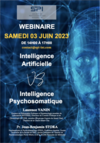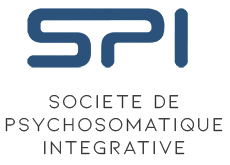
ARTIFICIAL INTELLIGENCE VS. PSYCHOSOMATIC INTELLIGENCE
***
There is no unanimous definition of the term intelligence. The fact is that the concept covers multiple aspects. Logic-rational, emotional, bodily, intuitive, creative... Human, animal, vegetable... Natural, artificial.
The term artificial intelligence ( AI ) was proposed in 1956 by John McCarthy, but the original question "Can machines think?" was posed by Alan Turing in 1950.
Two approaches continue to underpin the development of AI:
- Connexionism: behind the creation of the "formal neuron", an algorithmic model of the biological neuron. It is from their development and networking that deep learning is possible.
- Cognitivism: based on a link between language as a symbolic system and thought.
AI results from the activity of computer systems capable of "reproducing human-related behaviors, such as reasoning, planning and creativity", according to the definition adopted by the European Parliament (April 2022).
The ever-increasing power of processors and data storage capacities ("big data") means that, at current levels (low to moderate AI), "generative" artificial thought can emerge. The applications are growing all the time, impacting business as much as our lives. All fields are now concerned: complex decision-making processes, conversational possibilities (GPT Chat), scientific research including mathematics, artistic creation, medicine....
So-called "strong AI", which seems to be expected by 2050, would open up the possibility of systems capable of developing artificial "Theory of Mind" and "self-awareness". This tipping point towards a creative "artificial subjectivity" will raise unprecedented questions at the interface with our embodied creative subjectivities, psychosomatic by nature; borne and carrying sensory, motor, visceral, cognitive, psychoaffective, symbolic and narrative memories.
Although we haven't yet reached that point, we are already facing an influx of legal (data protection) and ethical questions. And they may already be renewing the way we look at ourselves.
It is therefore with great pleasure that Mrs Laurence Vanin, Doctor of Philosophy, and Prof. J.B. Stora will help us with their insights.
Dr L. Naccache
